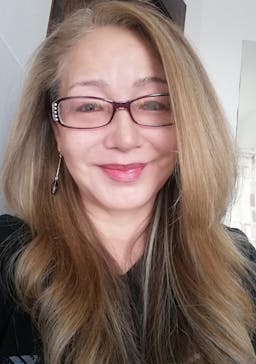Digital Literacy
Jan 21, 2015
Story
“I am the software, you guys are the hardware, and together we are changing the conversation all over the world” I said to an old acquaintance of mine, an engineer of course. You can just imagine how big his eyes were open when he asked: “Really? And how in the world are we supposed to be doing this?”
Every time I remember this episode, I can´t help giggling, because it took me two hours of discussion to make him understand that without us, the women of the world, none of the technological devices such as smart phones and computers, would be really effective, and they would not sell as well as they sell nowadays.
This is because women have made technology theirs. And the good news is that they have done it first, in the poorest countries. Bolivia is a living example of how the internet is changing women´s lives. Today, almost all women have a mobile phone, and at least 50% of women are connected in some way to the internet via cell phone.
I carried out a small survey to ask women what technology means to them. From 20 women of different backgrounds, the answers were diverse, but not divergent. With their own words they described how the internet had helped them find the right places, the right medicines, the right stores, and even the right company! I got the idea. For them, acquiring digital literacy, means acquiring freedom, it means becoming free.
Free from asking their husbands, or sons, or even daughters, about things that are on their minds, to improve their lives. Freedom. This is the blue bird they have caught, whenever they get digital literacy. It is a big step for them, for all of us.
Imagine now, how they are using their new freedom. My engineer friend did not understand that we are the software. He could not see it. I, instead, see it clearly. We get into the hardware they provide to us, and we become the software that runs in the hardware. We are what makes the world wide web, something meaningful. We use it to make our dreams possible. To make our communities better places for us. Safer places. And of course, we become, more and more every day, the rulers of our destinies.
The secret to this is simple, but not easy. We are learning how to read and write in the web, more than ever before because we need to use the skills. When we use our social networking literacy, we become empowered. When we interact with men in the web, they do not see our clothes, or faces, or even our physical disadvantages. So when we communicate in the web, they are only aware of our hearts, our souls, and this lowers the discrimination rates, because in the web we are really more equal. We can defend ourselves with words, and women have always been good at using words. We are now creating communities, instead of just places to interact. We are now forming families that get in touch, to decide which government policies are acceptable and which ones are not. And we make men feel awkward, or downright guilty, for being violent.
So, digital literacy is, all at once, shaping a better destiny and making us capable of realizing our dreams. We now have the means to forget about how much suffering we encounter, and instead, we are building networks that are making us free from all kinds of chains. Thank you engineers. Thank you hardware providers. We are now, working together.




